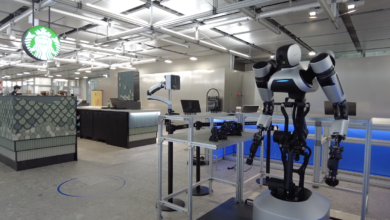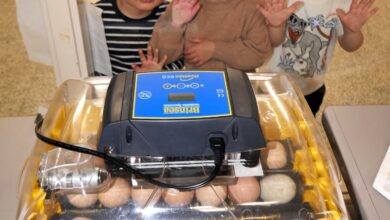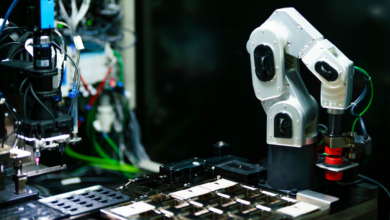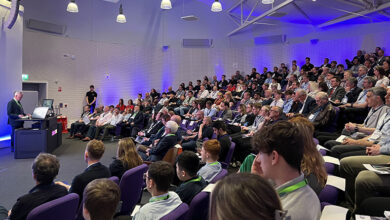Israeli HS team wins 1st place in international robotics competition in Texas
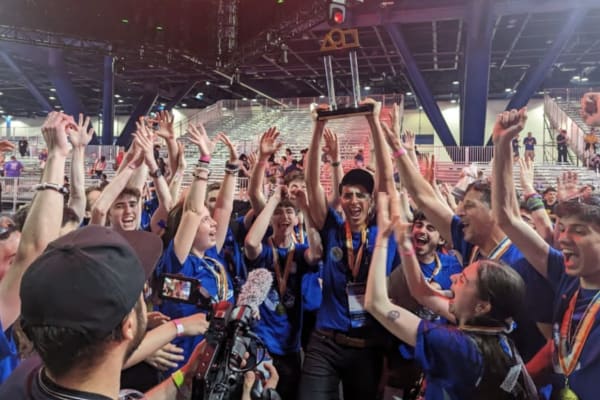
FRC team Orbit #1690 from Binyamina celebrates after winning first place the FIRST Robotics Competition in Houston, Texas. (Photo: FIRST Israel)
An Israeli high school team, Orbit #1690 from Binyamina, recently won the FIRST Robotics Competition in Houston, Texas.
This marked the first victory for an Israeli high school team in this prestigious international contest in two decades. The win is especially significant for Israeli youth given the challenging circumstances during the ongoing war in Gaza against the Hamas terrorist organization.
Ido Mazorski, the CEO of FIRST Israel, said the international competition is mainly about the experience.
“The kids come to the event for the experience, and not for politics, the notion of inclusion is one of FIRST’s Core Values, it’s embedded in the organization,” Mazorski said. “Five hundred and 50 kids and adults flew to the U.S., 14 teams, and we won big time.”
A second Israeli team called Team Sycamore #5614 from Holon won the coveted Impact Award, which rewards a team that has had a positive impact on its community for a longer period of time.
The Start-Up Nation, Israel, holds domestic robotics competitions for Israeli school-age children from across the nation’s diverse population. The overall purpose of these robotics competitions is to increase awareness and interest in technology among youth. In addition, these competitions also teach children the importance of teamwork and inclusion.
FIRST Israel focuses on STEM disciplines (science, technology, engineering and math) with the understanding that engagement in these areas builds confidence in young people and opens doors to various kinds of career opportunities, even for the underprivileged. FIRST Israel is offered throughout the entire country to students of all backgrounds: Jews, including ultra-Orthodox Haredim, Muslims, Bedouin, Christian and Druze communities. Roughly 38% of the members are young women, many of which hold key leading positions on their teams.
The latest Israeli victory signals the Israeli society’s resilience amid a protracted multifrontal war. Mazorski recalled that the Hamas attack on Oct. 7 of last year temporarily put FIRST’s activities on hold as he was called to the Israeli military.
“After three weeks of the war, I gathered all of the mentors and told them that we had to get the kids to the workshops,” Mazorski said.
Gila Kusan, a veteran FIRST Israel employee who is expected to replace Mazorski as the organization’s new CEO, recalled that this year “there was more intensive work on the Core Values, to give the kids a sense of security. It was important to us to have this activity without including anything that does not relate to FIRST.”
“There was a feeling of camaraderie, we are the FIRST family, despite that horrific event, we found a way to have this activity, and it allowed us to incredible achievements,” Kusan added, referring to the Hamas terror attack which launched the war in Gaza.
“There was almost no team that did not participate because of the war,” Kuzan told The Jerusalem Post.
The Technion-Israel Institute of Technology sponsors the FIRST Israel program, which aims to inspire young Israeli students to develop interests and skills in technology-related fields.
While the Technion is a ‘future-focused’ institution, it has also developed technologies that connect the Jewish people to its ancient past. In 2022, the Israeli astronaut Eytan Stibbe brought the world’s smallest Bible to the International Space Station. The Nano Bible, a 0.5 square-millimeter silicon nanochip on which the 1.2 million letters of the Hebrew Bible were etched, was created at the Technion.
